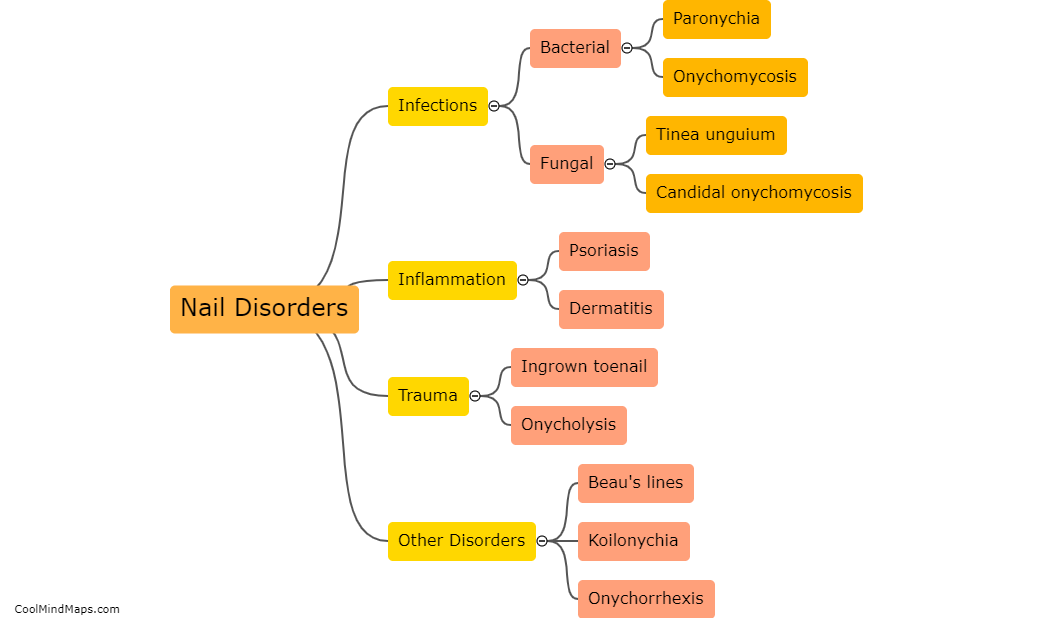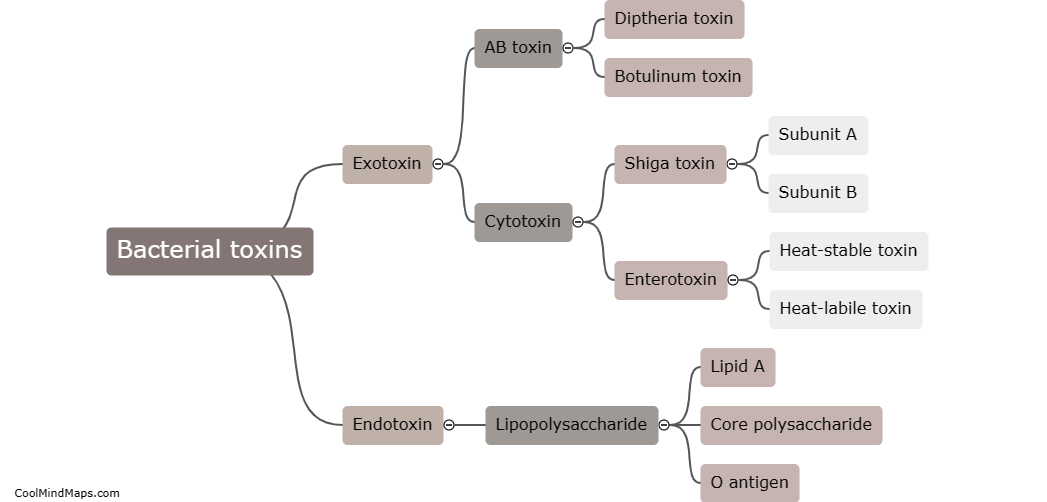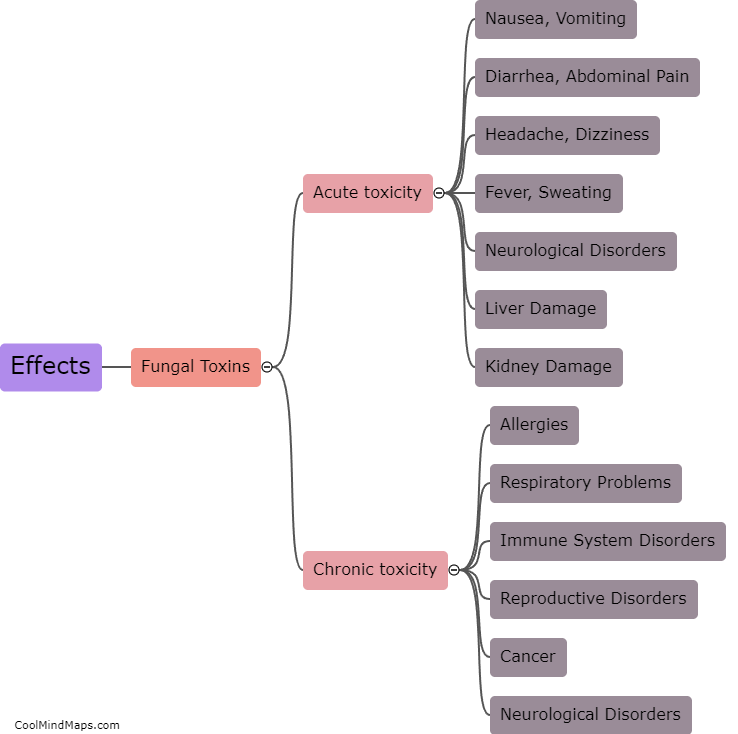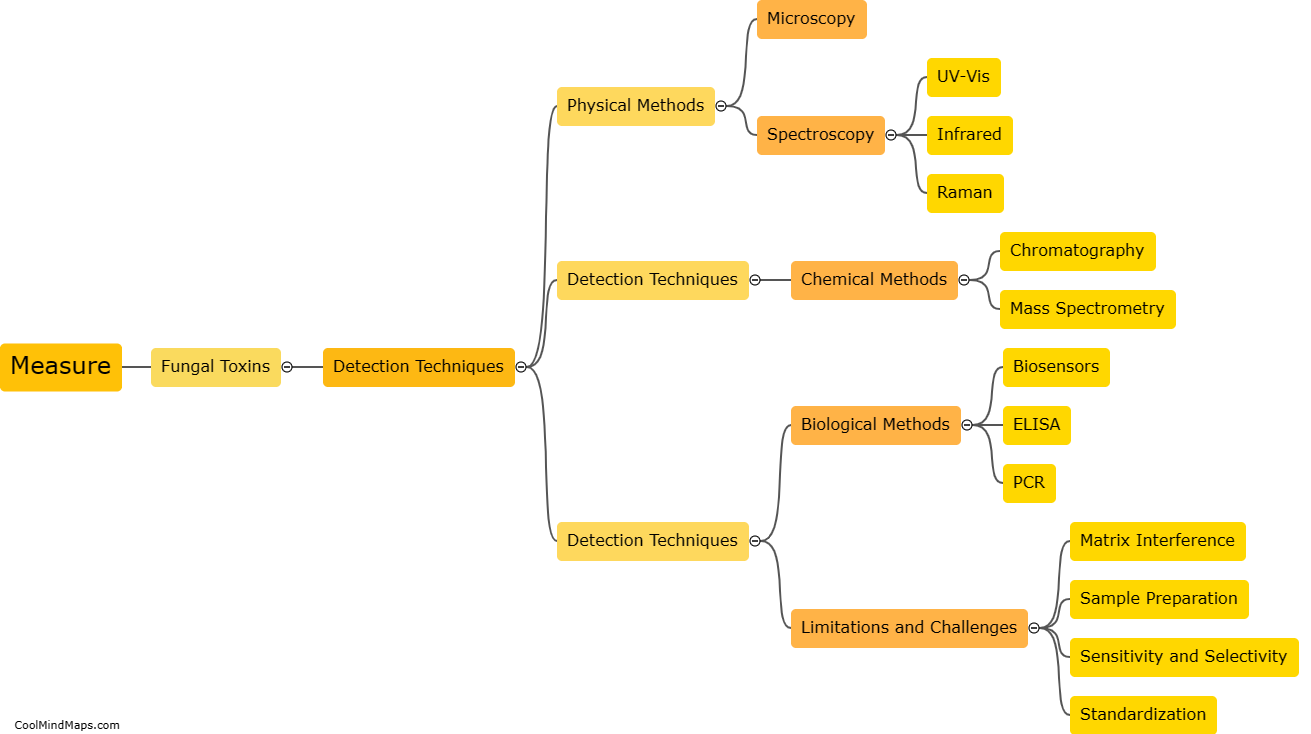How do bacterial toxins contribute to diseases?
Bacterial toxins play a crucial role in causing diseases by disrupting normal cellular functions and immune responses. These toxins are produced by certain pathogenic bacteria and act as virulence factors that aid in bacterial survival and colonization within the host. They target various key components of host cells and tissues, leading to tissue damage and contributing to the development of disease symptoms. Bacterial toxins can interfere with cell signaling pathways, disrupt protein synthesis, induce inflammation, and even cause cell death. Examples of diseases caused by bacterial toxins include diphtheria, tetanus, botulism, and food poisoning. Understanding the mechanisms by which bacterial toxins contribute to diseases is vital for the development of effective treatments and prevention strategies.
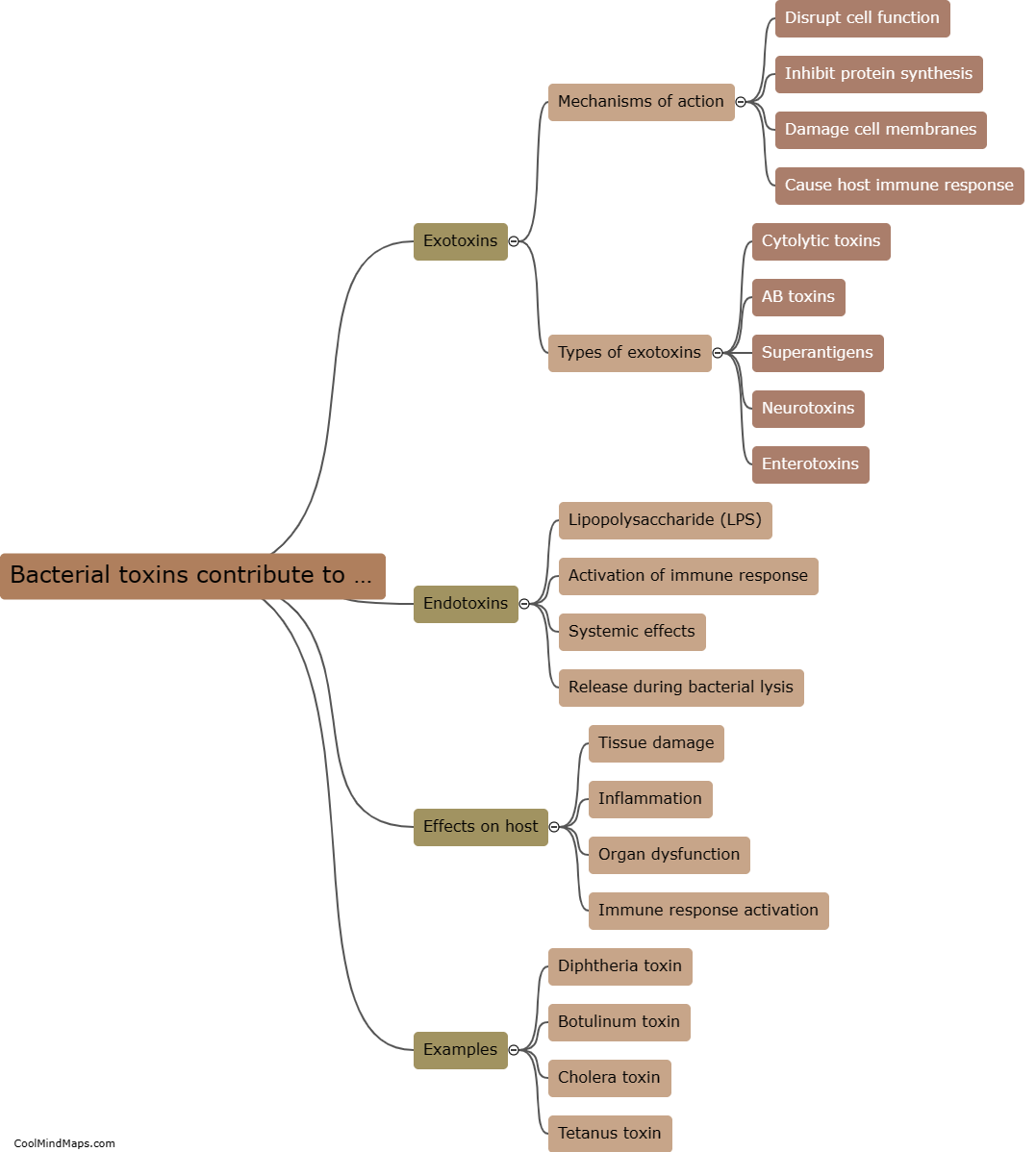
This mind map was published on 3 December 2023 and has been viewed 145 times.

